In honour of Jew of the Week’s 9th birthday this November, we will feature a month-long series on the Sassoon family, the “Rothschilds of the East”. This is the final Part 4. Read Part 1, Part 2, and Part 3.
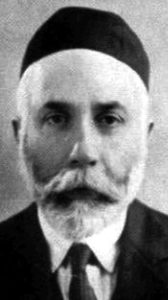
David Solomon Sassoon
David Solomon Sassoon (1880-1942), the grandson of patriarch David Sassoon, was born in Bombay, India. He was deeply religious, and spent much of his life travelling in search of ancient and rare Jewish manuscripts. By 1932, he had amassed an incredible collection of over 1200 unique texts. He described them in his two-volume tome, Ohel David. Today, these works are an indispensable tool for scholars of Judaism. Unfortunately, many of the manuscripts were auctioned off in recent decades to pay off the Sassoon estate’s tax debts to the British government. Many others are stored at the University of Toronto, and some at the British Library.
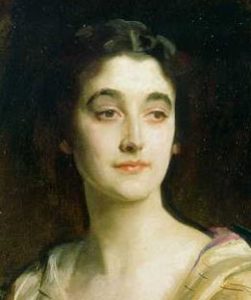
Sybil Rachel Sassoon, the Marchioness of Cholmondeley
Sybil Rachel Betty Cecile Sassoon, the Marchioness of Cholmondeley (1894-1989), daughter of Edward Sassoon, she wished to assist the war effort during World War II, and joined the Women’s Royal Navy Service. She went on to serve as Superintendent of the Women’s Royal Navy Service, and a Chief Staff Officer. In 1946, she was made a Commander of the British Empire (CBE) for her valiant service. Her great-grandson is actor Jack Huston.
Rachel Sassoon Beer (1858-1927), daughter of Sasson David Sassoon, married a wealthy German-English banker and converted to Christianity, for which her family disowned her. She started writing for The Observer, and eventually became its editor. (She later became editor of the Sunday Times, too.) It was Rachel who managed to secure a confession from Count Ferdinand Esterhazy that the “evidence” against Alfred Dreyfus was forged, and that Dreyfus was innocent. This led to Dreyfus’ release from prison. (And it was the Dreyfus Affair that was one of the key elements in inspiring Theodor Herzl.) Rachel left much of her wealth to her nephew, Siegfried Sassoon (1886-1967), a war hero and one of the most celebrated poets of World War I.
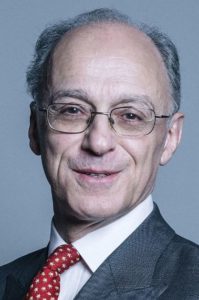
The Right Honourable James Mayer Sassoon, The Lord Sassoon
The son of another of Rachel’s nephews is James Meyer Sassoon (b. 1955), who was born in London and studied at Eton College, followed by Oxford University. After heading a number of investment firms, he joined the British Treasury in 2002. Five years later, he was appointed as president of the Financial Action Task Force on Money Laundering. Among his duties was combat financing for terrorists. He was knighted in 2008, and entered the House of Lords in 2010, taking on the title of Baron Sassoon. He also served as the first Commercial Secretary to the Treasury.
Words of the Week
I prefer a wicked person who knows they are wicked, to a righteous person who knows they are righteous.
– Rabbi Yaakov Yitzchak of Lublin (c. 1745-1815)

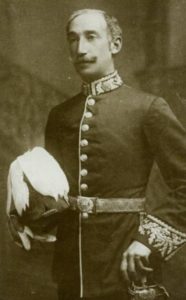 Sir Edward Sassoon (1856-1912), the son of
Sir Edward Sassoon (1856-1912), the son of 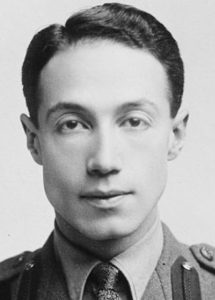 Their first child was Sir Philip Albert Gustave David Sassoon (1888-1939). He studied at the prestigious Eton College, and then at Oxford—one of just 25 Jewish students at the time. Following this, he joined the British Army and had the rank of second lieutenant. He followed his father into Parliament in 1912. When World War I broke out, Sir Philip was sent to mainland Europe and was the private secretary of Field Marshal Douglas Haig, commander of the British Expeditionary Force. He was later awarded the Croix de Guerre for “distinguished service” in the war. Returning to Parliament after the war, Sir Philip made it his personal mission to bring civilian air travel to England and the world. Airplanes were still little-known by the public, and considered far too dangerous. Sir Philip bought his own airplane in 1919 to promote air travel to the masses. In 1931, he was appointed Under-Secretary of State for Air. He also served as England’s First Commissioner of Works, and chaired London’s famous National Gallery. Philip owned Trent Park in the north of London, and built a mansion there where he liked to host his many friends. Interestingly, during World War II the British used Trent Park as a luxury prison for high-ranking German POWs, on whom they
Their first child was Sir Philip Albert Gustave David Sassoon (1888-1939). He studied at the prestigious Eton College, and then at Oxford—one of just 25 Jewish students at the time. Following this, he joined the British Army and had the rank of second lieutenant. He followed his father into Parliament in 1912. When World War I broke out, Sir Philip was sent to mainland Europe and was the private secretary of Field Marshal Douglas Haig, commander of the British Expeditionary Force. He was later awarded the Croix de Guerre for “distinguished service” in the war. Returning to Parliament after the war, Sir Philip made it his personal mission to bring civilian air travel to England and the world. Airplanes were still little-known by the public, and considered far too dangerous. Sir Philip bought his own airplane in 1919 to promote air travel to the masses. In 1931, he was appointed Under-Secretary of State for Air. He also served as England’s First Commissioner of Works, and chaired London’s famous National Gallery. Philip owned Trent Park in the north of London, and built a mansion there where he liked to host his many friends. Interestingly, during World War II the British used Trent Park as a luxury prison for high-ranking German POWs, on whom they 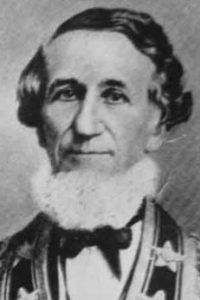 Abraham Jonas (1801-1864) was born in England to a religious Jewish family. He moved with his brothers to Cincinnati in 1819, and they were the first Jewish family to journey west to the new frontier beyond the Allegheny Mountains. They were also the founders of the first synagogue in Ohio, Congregation B’nai Israel. Jonas married Lucy Seixas, the daughter of
Abraham Jonas (1801-1864) was born in England to a religious Jewish family. He moved with his brothers to Cincinnati in 1819, and they were the first Jewish family to journey west to the new frontier beyond the Allegheny Mountains. They were also the founders of the first synagogue in Ohio, Congregation B’nai Israel. Jonas married Lucy Seixas, the daughter of